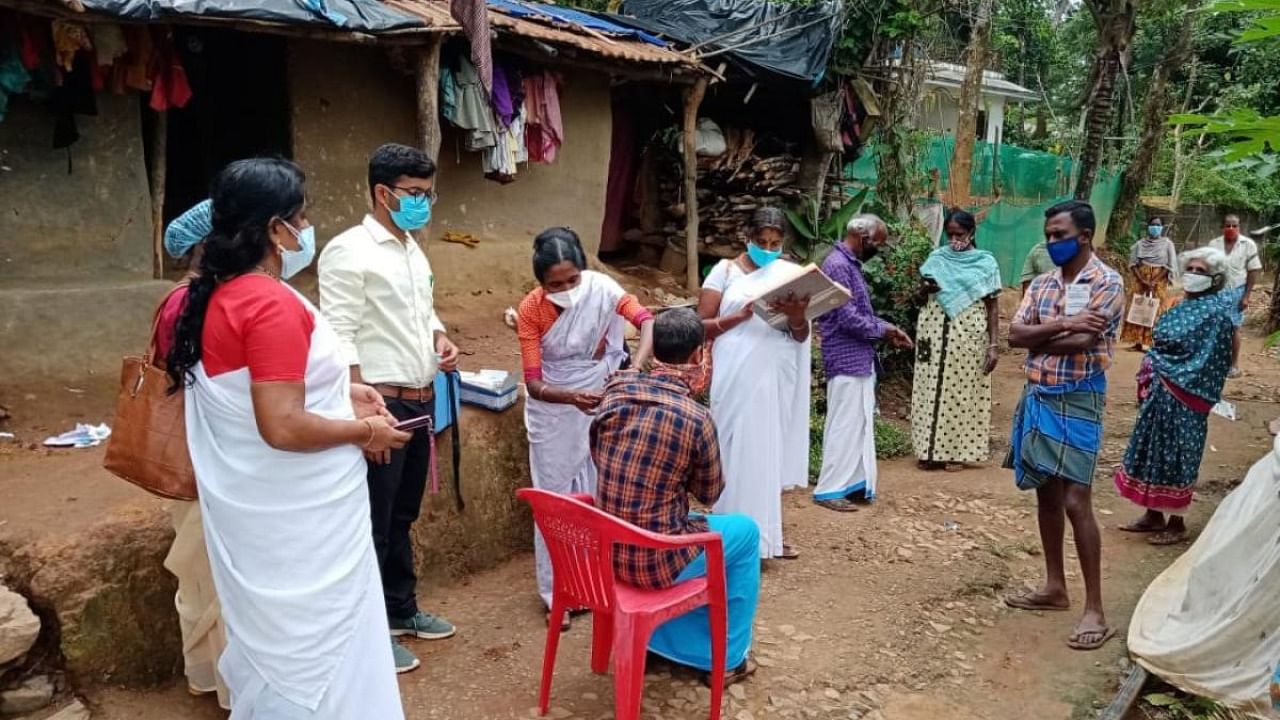
Health care staff and administration in the picturesque Nilgiris district in Tamil Nadu had their task cut out much like others as the second wave of Covid-19 pandemic raged in the state. But their job was much more challenging as they shouldered not just the responsibility of controlling the spread but also to overcome vaccine hesitancy among the tribal population.
The 27,000-odd tribal population in the district was very hesitant to get inoculated as many believed they would “die after a few days” or “men would become impotent” after taking the jab. With the second wave of the Covid-19 pandemic not sparing anyone, Nilgiris administration pulled all stops to take the vaccination drive to the doorsteps of the tribals by roping in NGOs who have worked among them for years together.
The month-long efforts have now paid off -- the entire eligible population among the tribals have received their first dose. Out of 27,032 tribals in the district, 21,435 were eligible and all of them have been partially vaccinated. Niligiris has also fared better when compared to other states by inoculating nearly half of those above 18 years of age.
Besides, the administration has also reached out to another vulnerable section – plantation workers by vaccinating all 23,000 who reside in the district.
Administering vaccines to tribal populations was the most difficult task as most of these hamlets are in far-flung areas and the health team had to travel for long hours to navigate through dense forests to reach them. The team travelled in “sturdy” vehicles used by officials of the Forest Department and the NGOs to reach the villages and convince the population of the need to get a jab.
Also read: About 49% of 60 years & above population vaccinated with first dose of Covid vaccine: Centre
“It was very difficult to convince them. We sought the help of NGOs who were working among the tribal population. Since they (tribals) trusted the NGOs, they listened to them and agreed after much thought and persuasion. The role of NGOs is crucial in this achievement,” J Innocent Divya, Nilgiris District Collector, told DH.
The team consisting of health care workers, district officials, and representatives of NGOs went to villages, spending hours together explaining the need to get vaccinated and busting myths on vaccination.
“The teams convinced village heads to get vaccinated first which instilled trust and hope in others. This process was repeated in every single hamlet. On the first day, our teams visited hamlets and convinced the population. The next morning, they landed early in the morning to vaccinate the eligible population before they left the hamlet for work or other reasons,” the district collector said.
The state government was also keen on inoculating the tribal population with Health Minister Ma Subramanian undertaking a visit to the district. Seasoned bureaucrat Supriya Sahu, CEO of INDOSERVE India’s largest Tea Co-operative Federation and Covid-19 monitoring officer for the district, also helped the district administration devise strategies on vaccination.
The reach out was carried out in phases with the district administration choosing to first inoculate those belonging to Todas and Kotas who are in the upper reaches. Since these are a mobile population who go out for work regularly, the district administration found it quite easy to bring them to the primary health centres for getting vaccines.
The difficult task was to convince people belonging to tribal communities such as Paniyas, Kurumbas, Irulas and Kattunayakans. Since the hamlets of these communities were in the plateau region and the vaccine hesitancy was most high here, the NGOs played a crucial role in convincing the population.
“Reaching the villages was itself an arduous task as they are located in far-flung areas, especially those that are not connected by road. The health care team navigated dense forests to reach these villages and get them vaccinated. The problem was less in reaching the villages that are connected by road,” Divya said.